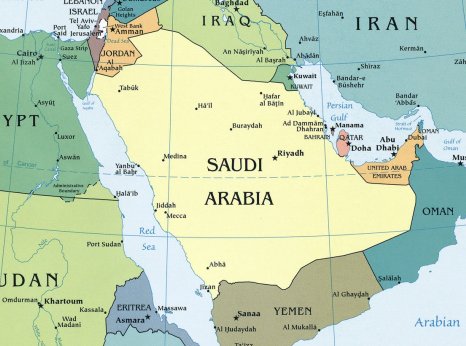Saudi Arabia: Young Man At Imminent Risk Of Execution

In October 2023, Amnesty International received credible information that the Supreme Court secretly upheld the death sentence of Abdullah al-Derazi without notifying his family or lawyer. On 16 October 2023, the UN Special Rapporteur on Summary, Extrajudicial or Arbitrary Executions expressed concern at the risk of imminent execution of Abdullah Al-Derazi. The young man could be put to death if the King ratifies his sentence.
In November 2024, the UN Working Group on Arbitrary Detention concluded that Abdullah al-Derazi’s detention, along with that of four other young men, Yusuf al-Manasif, Jawad Qureiris, Jalal Labbad and Hassan al-Faraj, was arbitrary. The Working Group considered that the appropriate remedy would be to release the five individuals immediately and accord them an enforceable right to compensation and other reparations, in accordance with international law. All the young men belong to the Shia minority and were younger than 18 at the time of their alleged offences.
In 2025, trusted sources informed Amnesty International that Yusuf al-Manasif, Jawad Qureiris and Hassan al-Faraj were retried and once again sentenced to death with their cases pending before the Supreme Court. Jalal Labbad and Abdullah al-Derazi were not retried at the time.
On 21 August 2025, Saudi authorities executed Jalal Labbad. Like Jalal Labbad, Abdullah al-Derazi was arrested and tried for alleged crimes committed as a juvenile after participating in protests against the government’s treatment of Shia minority. Both young men were subjected to grossly unfair trials and sentenced to death.
The Saudi Human Rights Commission told Amnesty International in a May 2023 letter that ‘the application of the death penalty on juveniles for ta’zir crimes has been completely abolished’. Ta’zir crimes, which both young men were convicted of, are crimes for which the death penalty is not mandated under Islamic law. The use of the death penalty against people who were under 18 years of age at the time of the crime they have been convicted of is strictly prohibited under the Convention on the Rights of the Child, which Saudi Arabia has ratified.
Abdullah al-Derazi was 17 at the time of his alleged crime. He was arrested on 27 August 2014 and sentenced to death by the Specialized Criminal Court (SCC) on 20 February 2018 for involvement in “riots in al-Qatif, and chanting slogans against the state and causing chaos”, “participating in a terrorist network … which aims to disrupt internal security”, and “attacking security officials with Molotov cocktails”. He told the court that he was held in pretrial detention for three years, during which he had no access to legal representation. According to his court documents, which Amnesty International reviewed, he told the judge: “I demand an independent medical evaluation to prove the torture that I have been subjected to … The records of the Dammam investigations unit hospital prove that I continue to be treated as a result of beatings on my ears during my interrogation.” The court failed to investigate his torture allegations, and instead on 8 August 2022, an appeals court upheld his death sentence.
Saudi Arabia is one of the world’s top executioners. In 2024, Saudi Arabia executed 345 people, the highest number of annual executions that Amnesty International has ever recorded in a single year for this country. Amnesty International’s analysis of Saudi Arabia’s use of the death penalty over the last ten years indicates an alarming use of the death penalty for “terrorism”-related offences against Saudi Arabia’s Shia minority. While the Shia community comprises an estimated 10-12% of the total population, they accounted for around 42% (120 of 286) of all “terrorism”-related executions between January 2014 and June 2025.